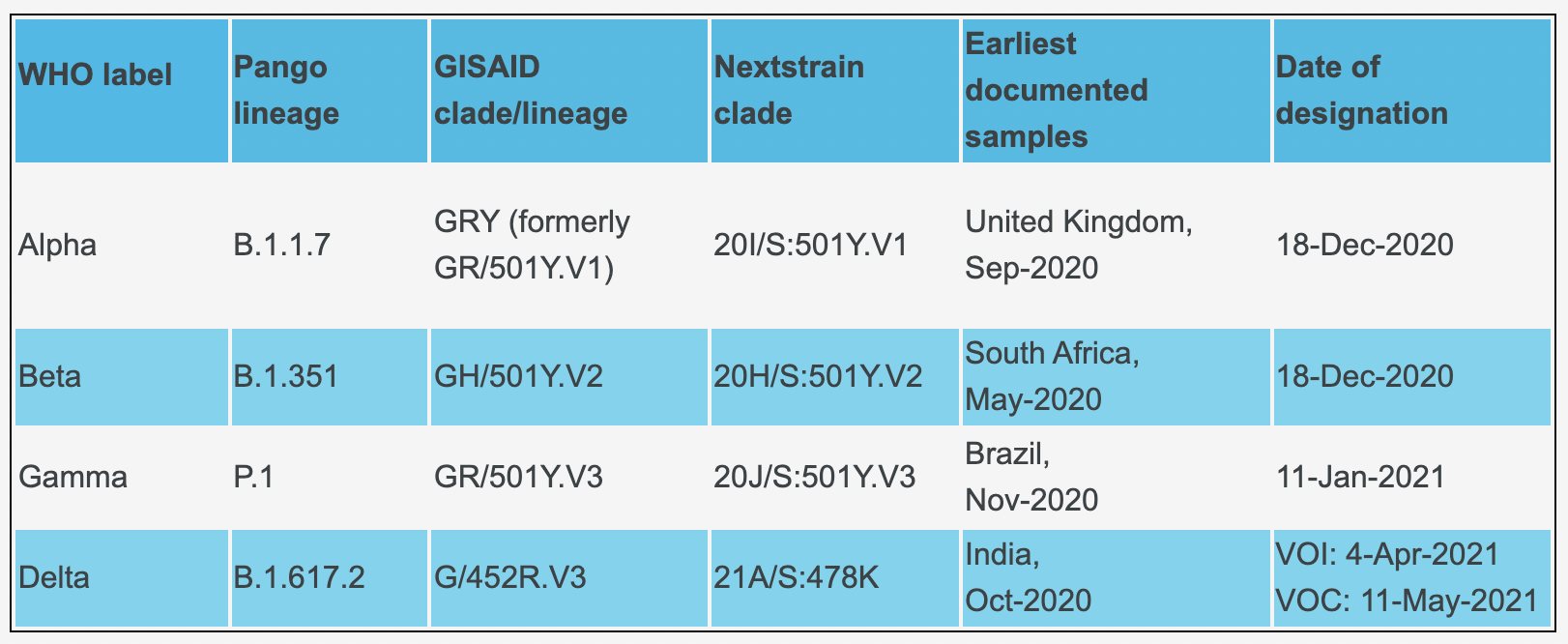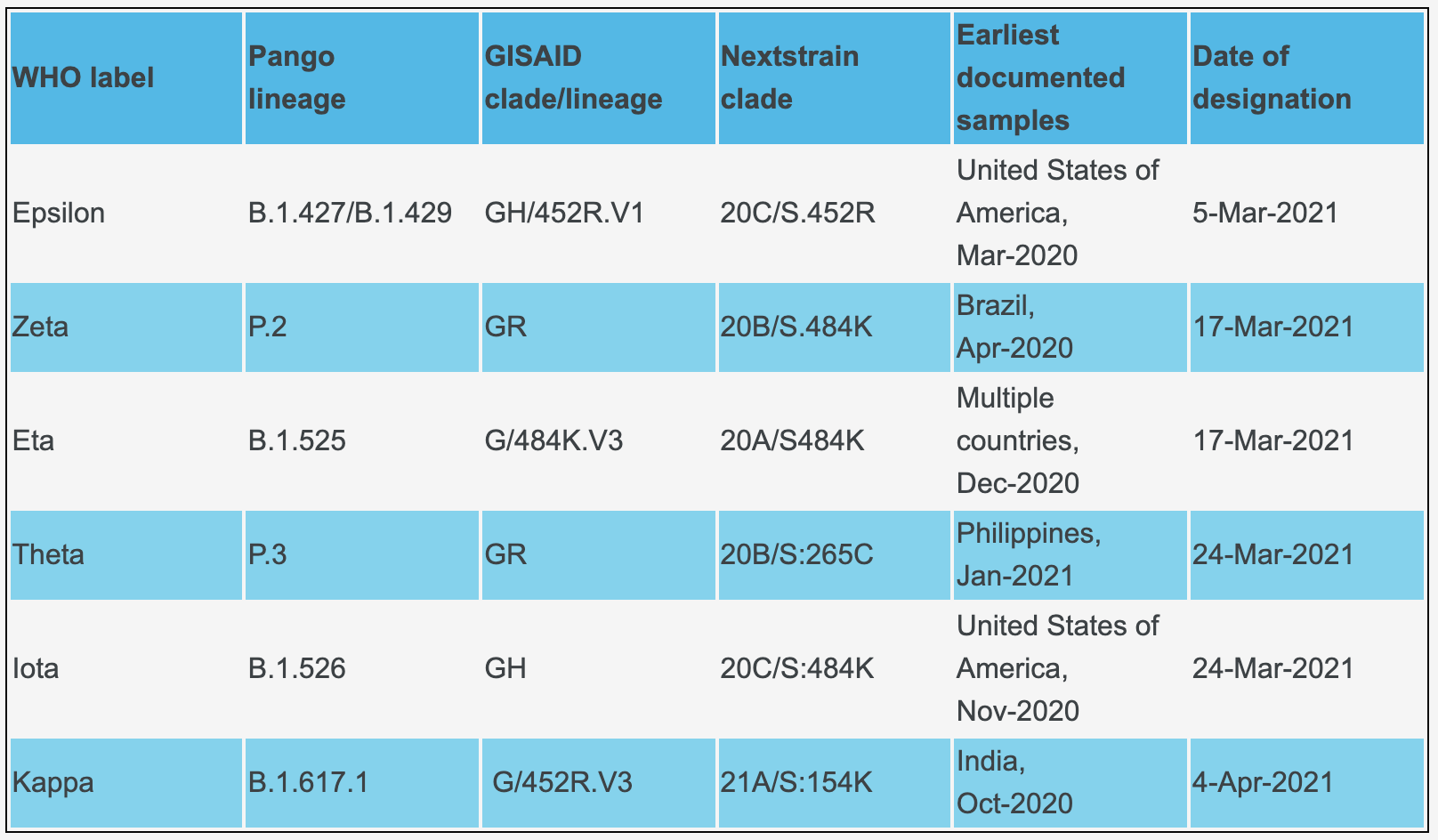Follow us on Telegram for the latest updates: https://t.me/mothershipsg
The World Health Organisation (WHO) has renamed Covid-19 variants — which originated in countries such as the UK, South Africa, Brazil, and India — using Greek letters, and not the countries where they were first documented.
WHO sought "non-stigmatising" labels
"The naming system aims to prevent calling Covid-19 variants by the places where they are detected, which is stigmatising & discriminatory," the WHO said in a tweet on Jun. 1, which also said that the new labels "do not replace existing scientific names."
However, the renaming aims to make it "easier and more practical" for discussion by "non-scientific audiences", the WHO said in an update on its website, dated May 31, 2021.
Thus, the Covid-19 variant first detected in the United Kingdom, which the WHO had previously referred to as the B.1.1.7 variant, will now be called the Alpha variant.
Other variants have been labelled "Beta", "Gamma", and "Delta".
 Screenshot via WHO website.
Screenshot via WHO website.
Variants may be classified as "variants of concern" by WHO due to their increased transmissibility, increased virulence, and their resistance to vaccines and other public health measures, among other factors.
Meanwhile, WHO also tracks "variants of interest", which have also been renamed as follows:
 Screenshot via WHO website.
Screenshot via WHO website.
Related story
Top image via @cdc on Unsplash
If you like what you read, follow us on Facebook, Instagram, Twitter and Telegram to get the latest updates.
